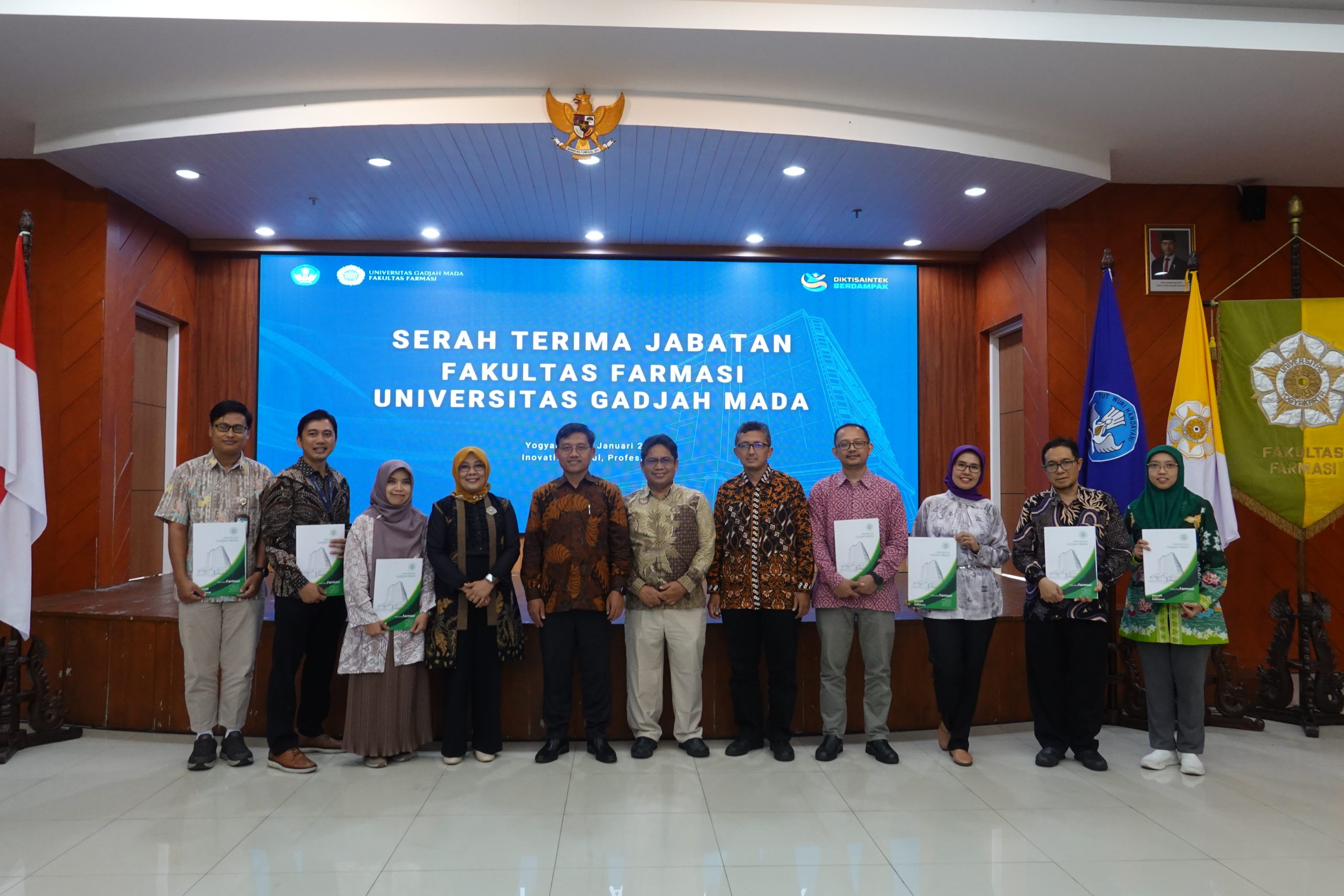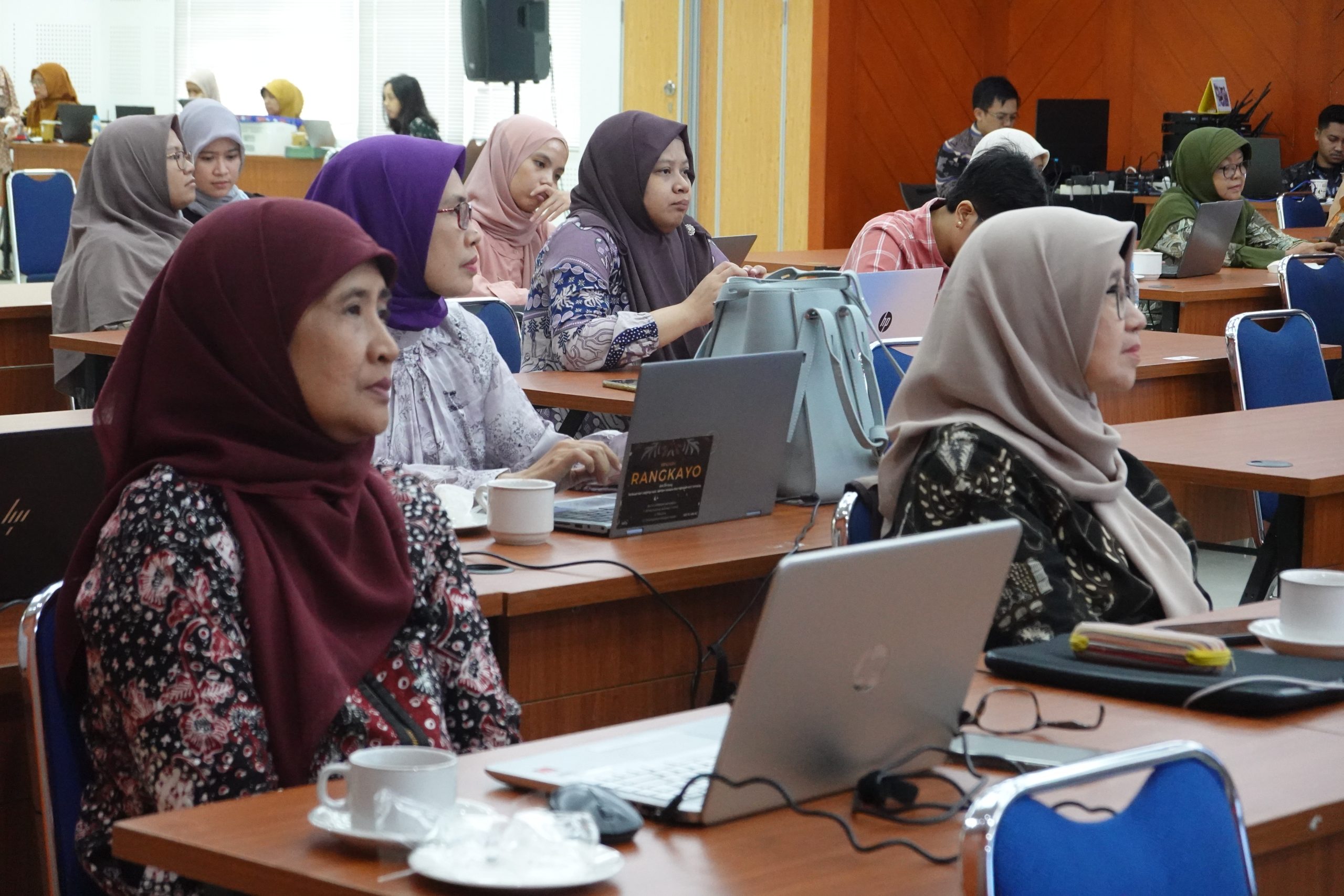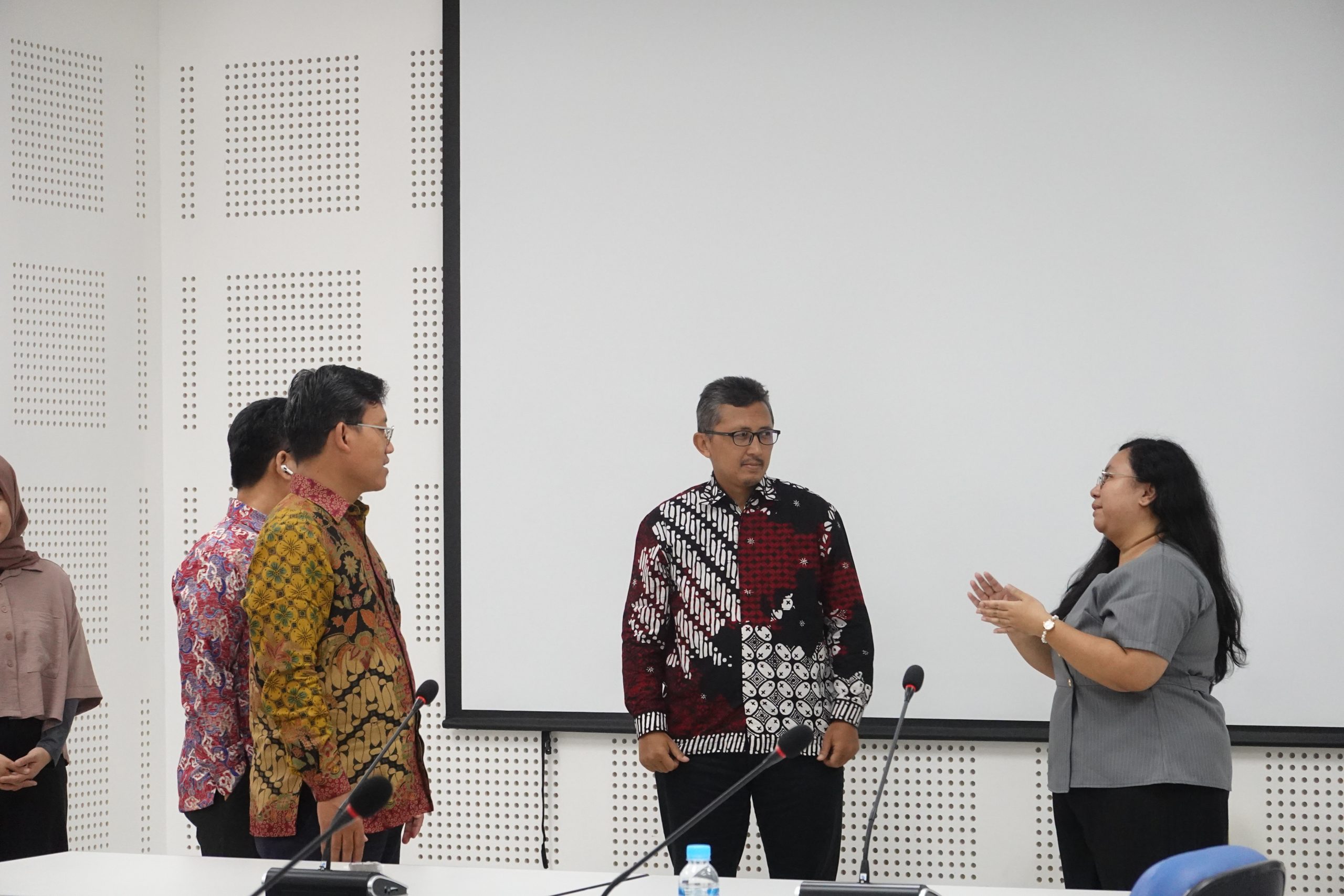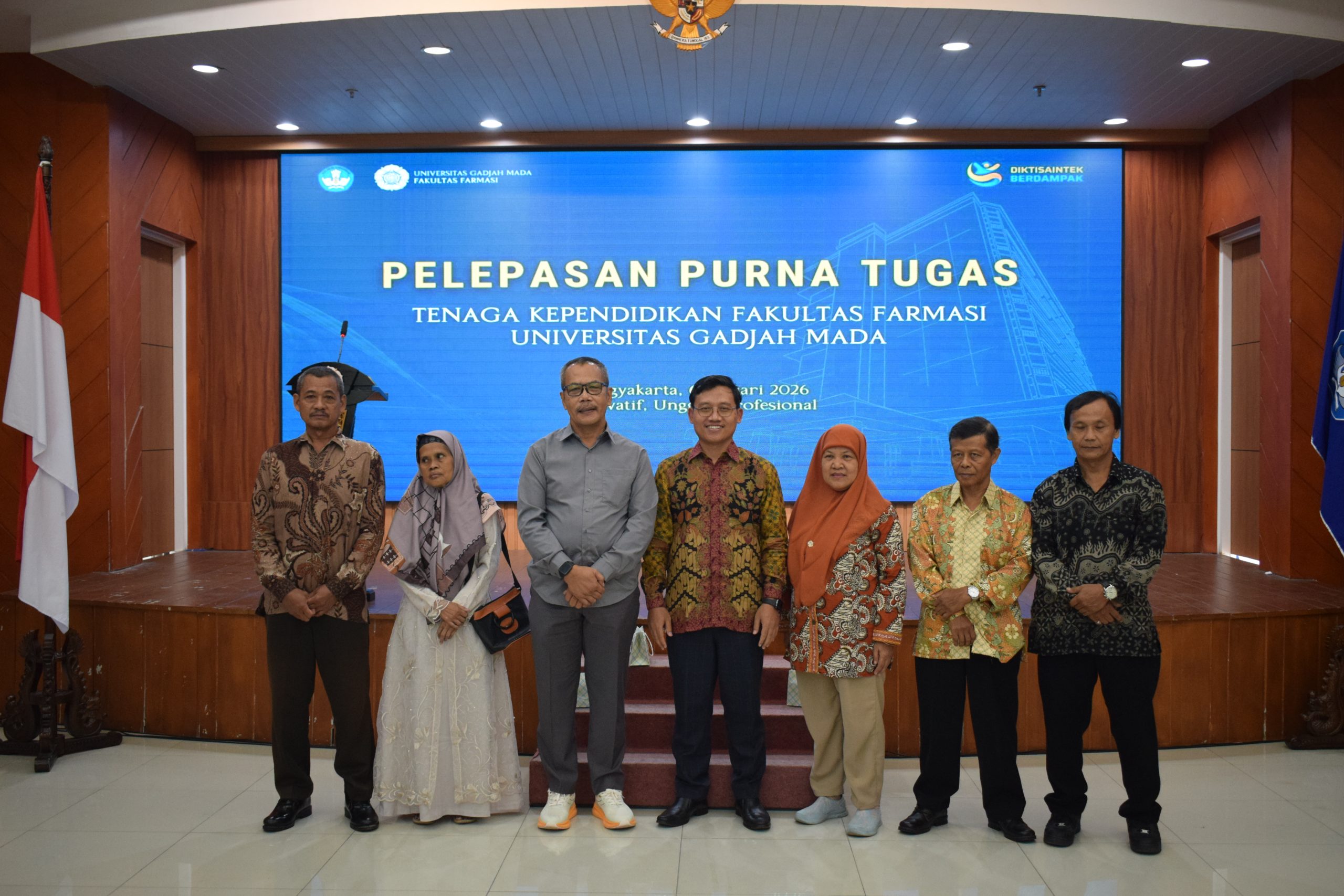Farmasi UGM – The Faculty of Pharmacy at Gadjah Mada University (UGM) reaffirmed its commitment to community service by organizing a training workshop on “The Practice of Cultivating Medicinal Plants and Preparing Simplisia (Dried Medicinal Plant Materials).” Held at Joglo Hariti, near the Banyunibo Temple tourist area in Cepit, Bokoharjo, Prambanan, Sleman, the event was a collaborative effort between UGM’s Faculty of Pharmacy, the DIY Regional Agency for Women’s Empowerment and Child Protection, and the Bokoharjo Sub-district. The primary participants were women activists from the Desa Prima Ngudi Makmur group.
The main objective of this initiative closely aligns with global efforts to support the Sustainable Development Goals (SDGs). Specifically, the training was designed to directly contribute to SDG 3: Good Health and Well-being. This was achieved by enhancing the knowledge and skills of village women in cultivating and processing beneficial medicinal plants such as ginger, turmeric, and Javanese ginger, known for their extensive health benefits.
The workshop featured two expert speakers, Dr. Djoko Santosa, MSi., and Dr. apt. Andayana Puspitasari Gani, M.Si., both of whom have extensive expertise and experience in pharmacy and phytotherapy. In his session, Dr. Djoko Santosa highlighted the importance of cultivating medicinal plants as a preventive health measure. “Ginger, turmeric, and Javanese ginger are examples of medicinal plants that are easy to grow, effective in boosting immunity and preventing diseases, and also possess economic potential that can be developed by village communities,” explained Dr. Djoko. This session was followed by hands-on practice in selecting quality seeds, proper planting methods, and plant care.
Meanwhile, Dr. apt. Andayana Puspitasari Gani led the session on preparing simplisia – the process of drying medicinal plant materials. “Quality simplisia are key to producing safe and effective herbal products. The processes of washing, size reduction, and drying must be carried out correctly to preserve the active compounds in the plants,” stated Dr. Andayana. Participants engaged in practical exercises, learning the proper techniques for washing, cutting, and drying ginger, turmeric, and Javanese ginger.
This initiative is expected to have a significant positive impact on both health and economic aspects. Through this training, the women activists of Desa Prima Ngudi Makmur are expected to apply their acquired knowledge to produce quality simplisia, both for their families’ consumption and for sale as herbal products. This effort directly supports SDG 3 targets aimed at promoting better health and reducing the incidence of communicable and non-communicable diseases within the community.
Ibu Tunjung, a representative from the Bokoharjo Village administration, expressed her appreciation: “This training not only supports health but also empowers women to become agents of change in their village. With the knowledge they’ve gained, it’s hoped they can achieve economic independence and improve their standard of living.” This aspect also directly relates to SDG 5 (Gender Equality), reflected in the direct empowerment of the women’s group. The technical skills in cultivating medicinal plants and preparing simplisia, from seed selection to post-harvest processing into valuable products, open up new economic opportunities for them.
The training also supports SDG 11 by promoting the use of home gardens for cultivating medicinal plants, contributing to greener and more sustainable settlements. Additionally, it aligns with SDG 13 through environmentally friendly herbal farming practices that reduce carbon footprints and enhance community resilience to climate change.
The Faculty of Pharmacy UGM hopes that similar community service activities will continue and expand to reach more villages. The active involvement of the community, especially women, in utilizing local natural resources for health and economic benefit is expected to create healthier, more self-reliant, and prosperous communities, in line with the spirit of the SDGs. Thus, this training serves as a tangible step in building awareness of the importance of health and the sustainable use of natural resources through medicinal plants.





